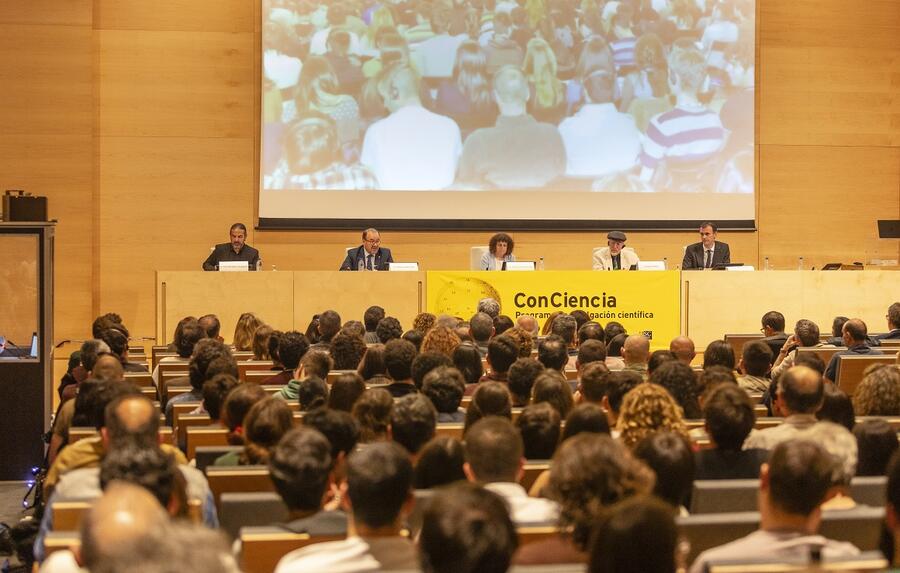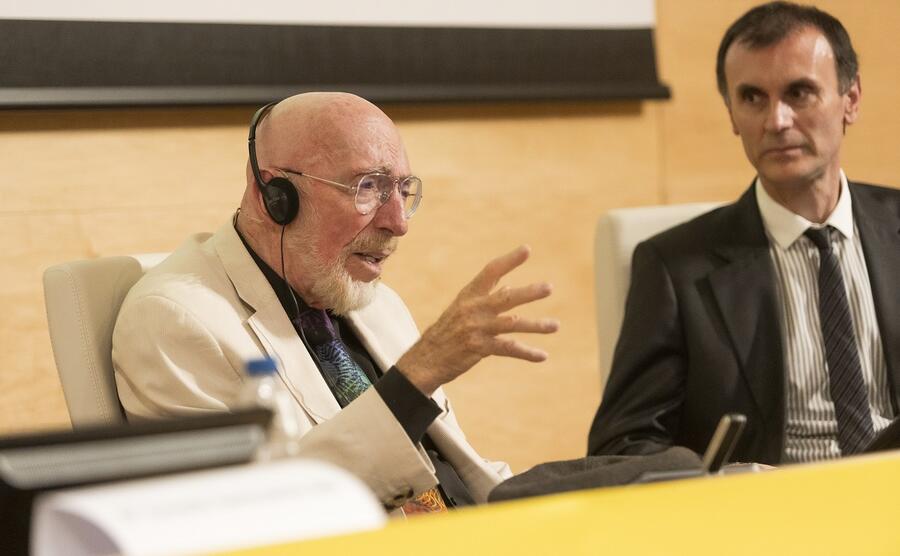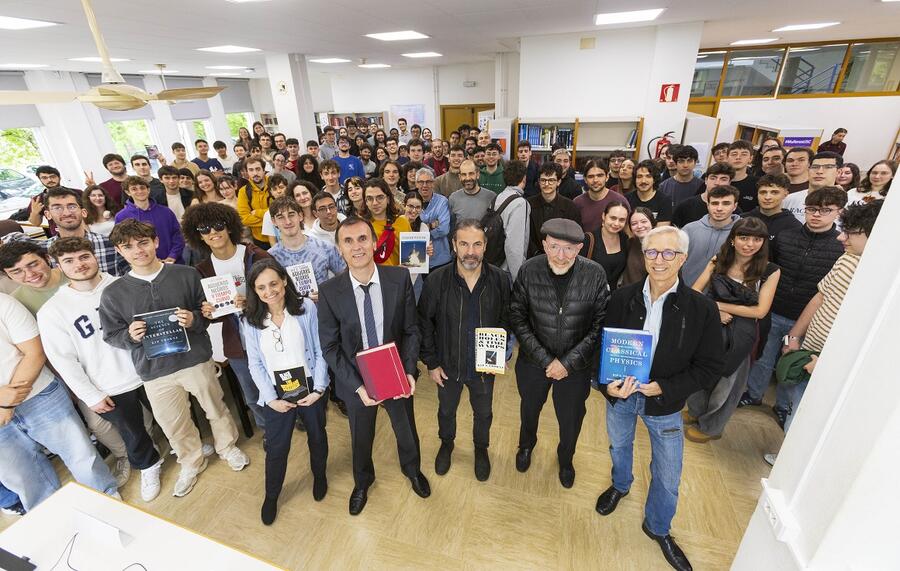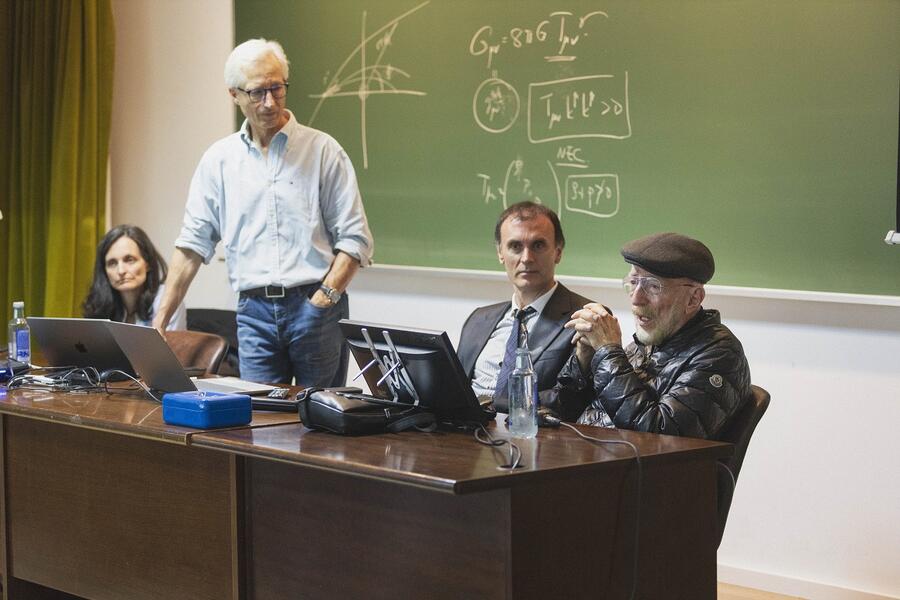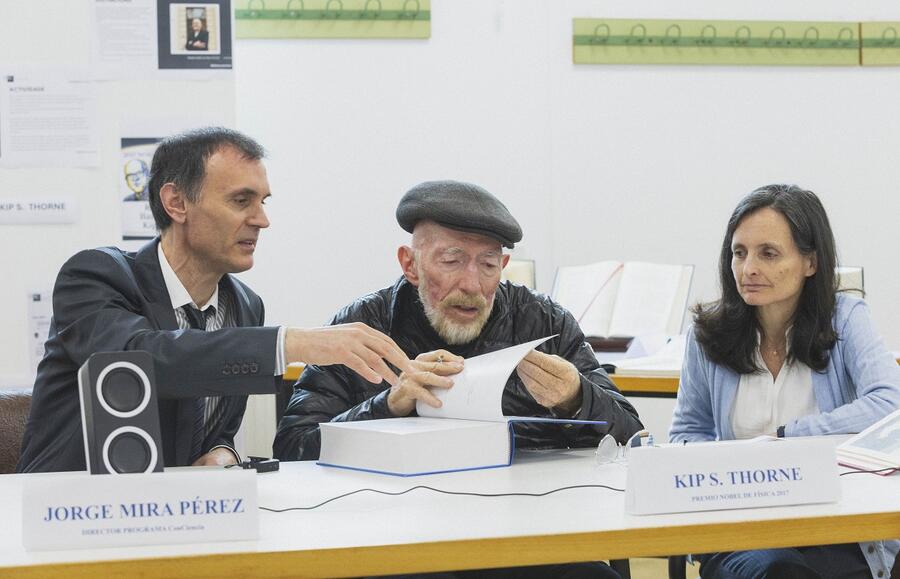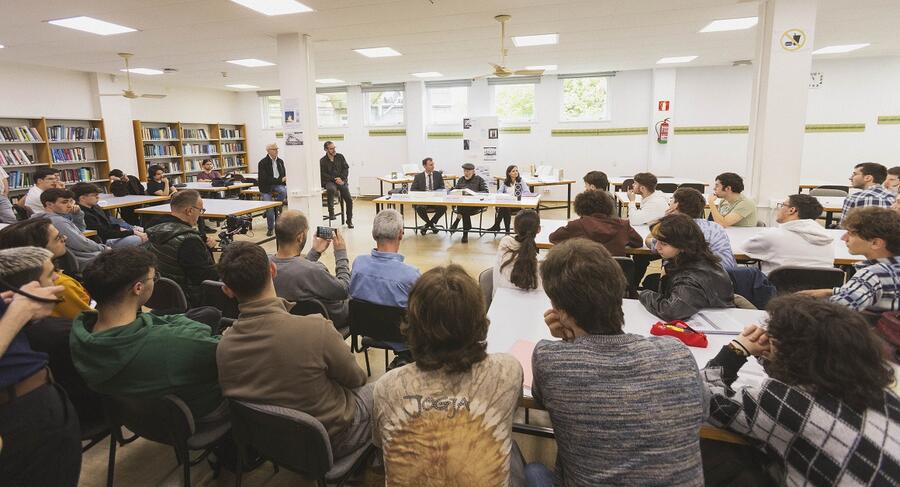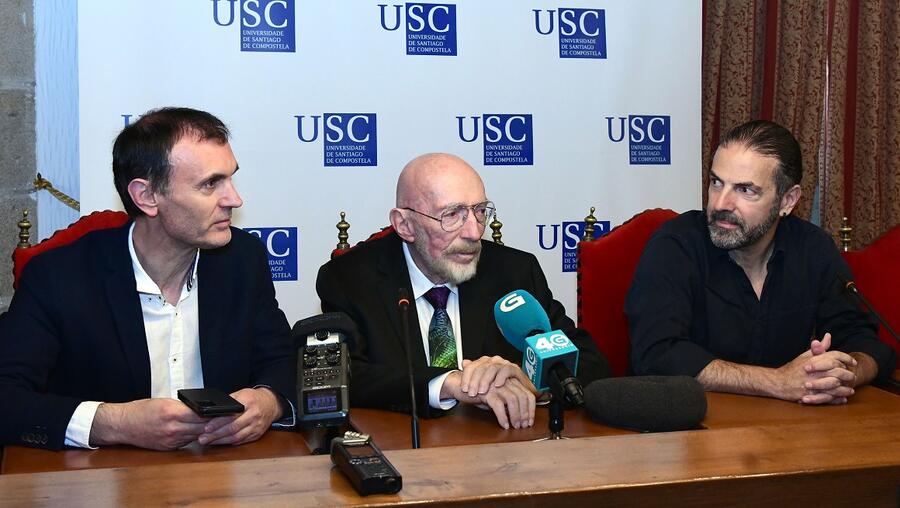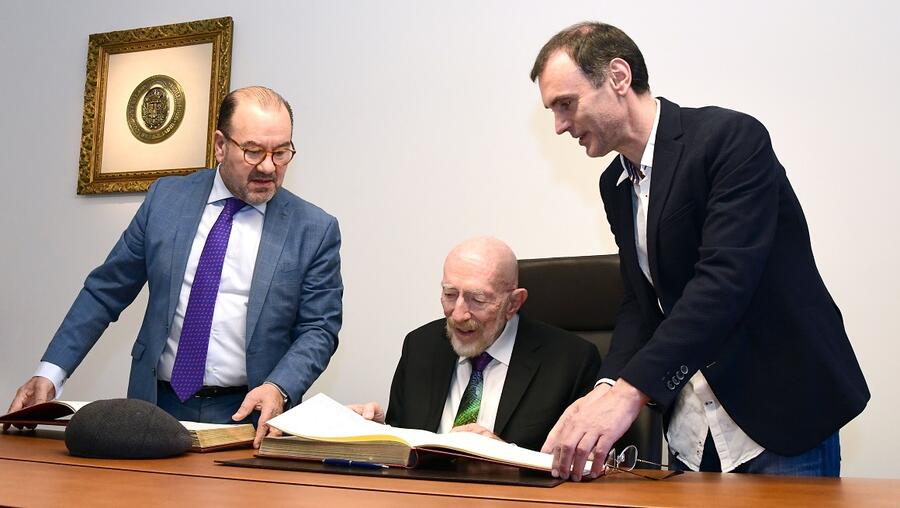
Nobel Prize in Physics in 2017 "for his decisive contributions to the LIGO detector and the observation of gravitational waves."
Kip Thorne was born in Logan, Utah (United States), in 1940. He graduated in physics from the California Institute of Technology (Caltech) and completed his doctorate at Princeton in 1965 under the supervision of John Archibald Wheeler, the great pioneer of General Relativity after the death of Albert Einstein. After completing his studies, he returned to Caltech, where he spent most of his academic career.
One consequence of General Relativity is the existence of gravitational waves: vibrations of space-time that occur when massive objects accelerate. The effects are so small that their observation was impossible for a century. World-renowned for his contributions to General Relativity and astrophysics, Kip Thorne was one of the founders of the LIGO project (Laser Interferometer Gravitational-Wave Observatory) in the 1970s, which enabled the direct detection of gravitational waves for the first time in September 2015. This was a historic milestone that confirmed Einstein's own prediction in 1916 and opened a new window on the exploration of the cosmos: since then, we have been able to observe more than 100 black hole mergers hundreds of millions of light-years away.
The LIGO detector uses laser technology (also pioneered by Einstein in 1917) to measure the tiny changes in length caused by gravitational waves in two 4-kilometer-long "arms" (the observed deformations are smaller than the size of a proton!). Thorne made crucial contributions to the detector's development. For this reason, he shared the Nobel Prize in Physics with Rainer Weiss and Barry Barish.
Kip Thorne specialized in the study of black holes and neutron stars, and has explored the structure of space-time, interested in the possibility of time travel through wormholes. His approach has always been to combine theoretical rigor with deep physical intuition. For decades, he trained generations of physicists and worked alongside key figures such as Stephen Hawking and Roger Penrose (2008 and 2011 Fonseca Prize winners of the Programa ConCiencia, respectively).
He is the author of reference books on academic physics, but has also distinguished himself as a science communicator, with books such as Black Holes and Curved Time: Einstein's Scandalous Legacy, and his participation as a scientific advisor on major films. He served as a scientific advisor and executive producer on the 2014 film Interstellar, as well as on the popular book about it. His involvement ensured precise treatment of phenomena such as rotating black holes and time dilation, leading to original scientific investigations.
Thorne is a bold thinker, open to exploring the boundaries between established science and informed speculation, always within the framework of General Relativity. In his career, he has achieved something unusual: uniting cutting-edge science with accessible pedagogy and interdisciplinary collaboration, while maintaining a commitment to rigor. Through his research, books, and contributions to art, he has expanded our understanding of the universe and inspired millions to look at the stars with scientific and inquisitive eyes.

